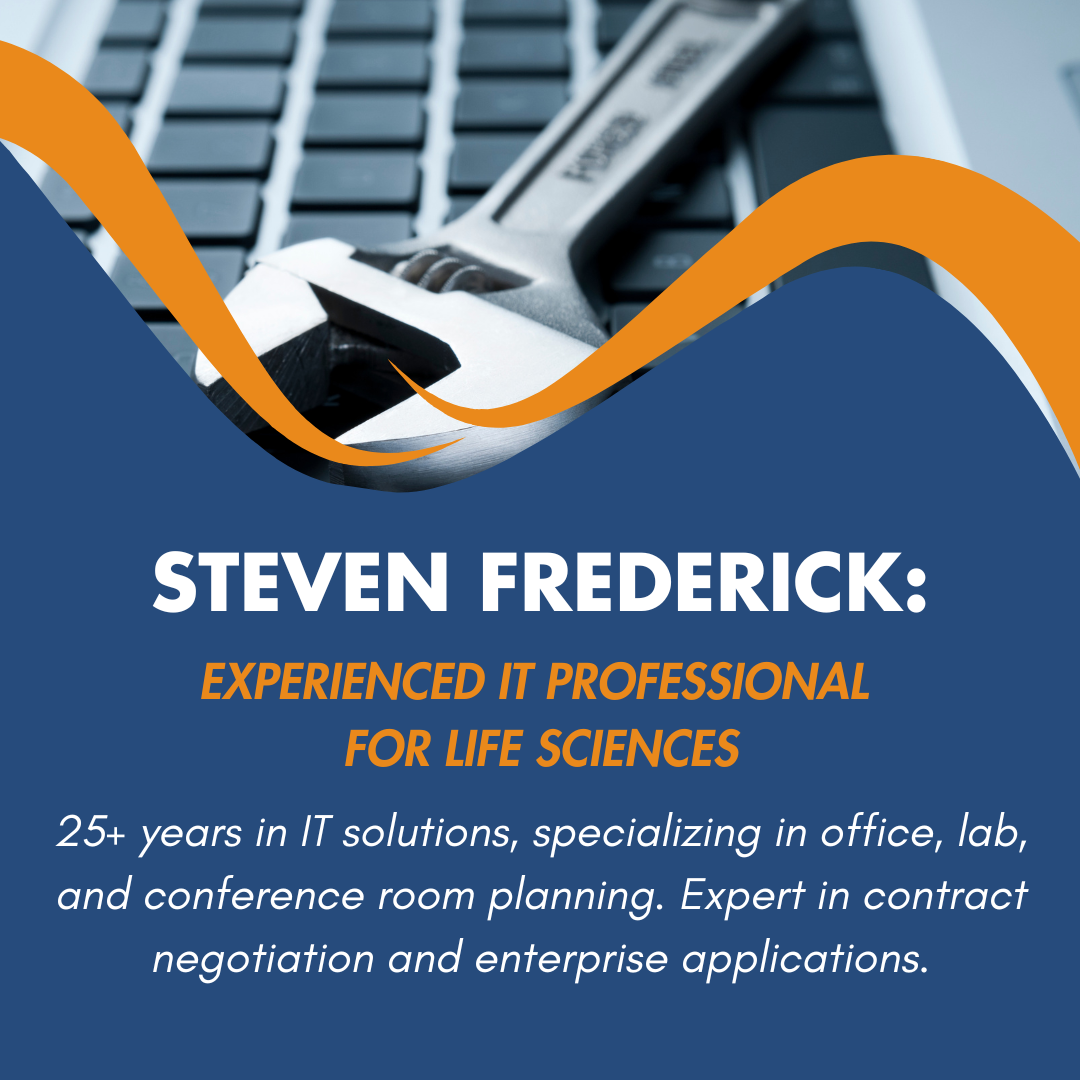How HR and hiring managers can improve interview outcomes to find objectively good scientific talent.
It’s Tuesday morning. As the hiring manager for your biopharma company, you’re expecting a scientist to show up to an 8:30am interview. You get a call from the front desk, telling you they’ve arrived—5 minutes late, which irritates you because you’ve got a packed schedule and must stay on track today.
You usher the scientist into your office. They don’t make eye contact, are reluctant to shake your hand, and show up in a hoodie and ripped jeans. As the interview progresses, they give you one-word answers mostly focused on data rather than how they performed at their previous job, further adding to your irritation.
Your first thought might be to dismiss this candidate as disrespectful—of your time and of social norms—and because their reserved nature doesn’t mesh with your more expressive personality. But what if you’re wrong? What if they would have been a stellar addition to your company’s new clinical trial, but don’t get the job because they lacked interview skills?
It’s quite possible they’re a good scientist, but bad at interviews. And it’s entirely possible they’re a good scientist, but you, as the hiring manager, unintentionally signaled you weren’t interested in them. Under the surface, several things are setting this interview up for failure.
Underselling in a technical role
According to Alaina G. Levine, professional speaker, STEM career coach, and author of Networking for Nerds, and Create Your Unicorn Career! (forthcoming),
“Most scientists tend to undervalue themselves, and therefore under market and undersell themselves in interviews.” This often manifests as a candidate who only talks about two things: science and “the metrics of success as they relate to academia, papers, presentations, or grants.”
The candidate who only speaks in numbers? That can be frustrating for hiring managers who want candidates to elaborate on their scientific experience. Levine notes, “I’m hiring you to be a scientist in a company that is driven to make money.” She says there is an “intersection between science and business,” making it important for candidates to discuss how they use their scientific skills to solve business problems—not just state that they have those skills.
On the flip side, hiring managers may need to put extra effort in to draw out these answers from a reserved candidate, such as digging deeper with follow up questions.
Screening candidates “in” versus “out”
Candidates applying for a scientific or other technical role can certainly find ways to ensure a better interview outcome. But hiring managers aren’t off the hook here.
Luigi Lupo, talent acquisition leader, Hackensack Meridian Health Network, says that in his 35 years of experience, hiring managers often lack this formal training. When interviewing candidates, hiring managers tend to subconsciously look for reasons why an individual won’t work in the role, he says. Instead, Lupo advises hiring managers focus on ways to “screen in” candidates, finding reasons why they’d be a good fit rather than why they wouldn’t.
Furthermore, he contends that
“interviewing is a combination of art and science.”
The art of an interview involves whether the interviewer and candidate connect or click—essentially, whether there’s chemistry. The science portion involves choosing the type of questions to ask (such as open-ended, hypothetical, or leading questions) to assess the candidate’s technical skills.
Creating interview frameworks
Lupo has crafted (and copyrighted) an interview guide designed to assist those making the hiring decisions, called PARTS: Problem, Accountability, Results, Timing, and Systems. It corrals the often-convoluted world of interview questions into a scored methodology. Hiring managers or human resources teams create a set of questions that are the same for each role type, then hiring teams score responses numerically. This leads to hiring teams more objectively “grading” a candidate’s answers. It levels the playing field and can help hiring managers make a more definitive decision if they’re unsure about a candidate.
Creating an interview methodology, or even a simple guide with a set of questions for scientific roles—one set for sales roles, one for scientific roles, and so on—can also help you remove subjectivity during your interviews. However, that doesn’t mean simply reading through the questions in strict order. Instead,an interview is like having a conversation, and you’ll need to reorder your questions to fit the interview flow, Lupo notes. This allows room for the art of an interview.
Though numerical in nature, Lupo’s PARTS methodology incorporates soft skills for all roles, including technical ones. Though we might not think of a scientific role requiring many soft skills, Lupo emphasizes the importance of evaluating them for every role—even giving them equal weight with technical skills. Soft skills should include “adaptability and aptitude” and a drive for continued learning. From there, evaluation of soft skills will depend on your company’s culture and the role’s requirements.
First impressions aren’t always reliable
Another key tip for hiring managers comes from the Lou Adler model of interviewing, which deemphasizes first impressions, at least initially.
As a hiring manager, you will have a first impression—say, of your candidate’s inclination to speak in clipped tones strictly about numbers and data. However, Lupo advises, “in this space, you can’t judge a book by the cover.”
Today, multiple generations participate in the biotech workforce, which can mean a range of ideas on what attire is acceptable for candidates to wear for an interview, for instance. Lupo’s advocacy for structured interviews helps hiring managers overcome the initial first impression to dig deeper into the individual’s talent, not their appearance or apparent aversion to conversational speaking. Lupo says this is a smart move, especially with today’s talent scarcity.
Mining for diamonds in the rough
Beyond structuring interviews and setting first impressions aside, Lupo stresses the importance of preparing for interviews—and not just for candidates.
Hiring managers must take the time to prepare for each interview, reviewing a candidate’s resume beforehand and demonstrating this knowledge during conversations with the candidate.
Candidates take time from their current job to interview with you. If you are unprepared for the interview or give the impression you’re indifferent, they feel unappreciated. Similarly, be mindful of your body language during an interview. You’re likely reading the candidate’s body language, but know they are also reading yours. It’s easy to forget as busy hiring managers.
As a hiring manager, you also shouldn’t make the mistake of assuming the next candidate will be better or a perfect fit. While it’s a possibility, Lupo says, “You might have lost a diamond in the rough that was worth exploring and engaging with.”
Lupo advises hiring managers to think beyond the single role you’re trying to fill when interviewing. Instead, view the role as a “genuine opportunity for the organization to bring in new talent.” It’s more of a future-focused mindset rather than a focus on a specific role that must be filled in the near future.
Takeaways for hiring teams
Adjusting your interviewing process to more readily identify diamonds in the rough may take some practice. Hiring managers must adopt a future-focused mindset when interviewing for biopharma roles. By preparing thoughtfully, they can uncover hidden talent that might otherwise be overlooked. As a starting point, this checklist of takeaways will help hiring managers conduct better interviews to find talented candidates who benefit the company:
☐ Participate in (or request) interview training.
☐ Prepare for each interview by thoroughly reading an applicant’s cover letter and resume.
☐ Apply the relevant information during conversations with the candidate.
☐ Create an interview guide with specific sets of questions for each type of role:
☐Scientific roles
☐ Sales roles
☐ Non-technical roles
☐ Set aside first impressions until after the interview.
☐ Be mindful of your body language.
☐ Adjust your mindset for future growth and opportunities.
In short, good talent is scarce, competition can be fierce, and unprepared hiring managers will have significant negative impacts on your company. Having the proper training, preparation, and structure in place can ensure better interview outcomes for hiring managers looking for top, yet often hidden, talent in the biotech industry.








